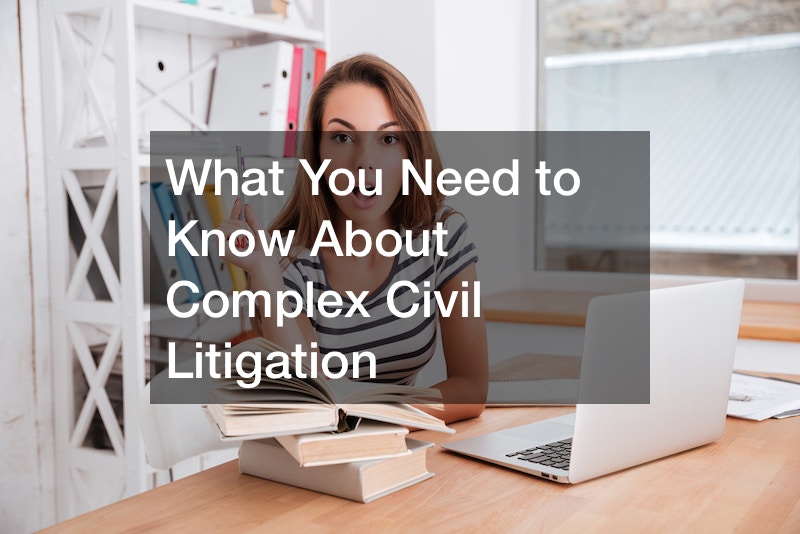
When it comes to the world of law, there’s more to it than what you see on your favorite legal drama series. In real life, the legal landscape is vast and varied, and one area that often bewilders many is complex civil litigation.
Whether you’ve heard about them in passing or are embroiled in one yourself, it’s essential to gain a firm understanding of what complex civil cases entail. Let’s break it down into bite-sized pieces.
Unpacking Complex Civil Litigation
At its core, a complex civil case denotes a legal dispute between two or more parties that is anything but straightforward. These cases are known for their intricacy, often involving multiple issues, numerous parties, or intricate legal questions. Unlike a typical courtroom drama, complex civil cases don’t wrap up neatly in a single episode; they can span months or even years.
The Role of Civil Rights
Civil rights, which include the fundamental liberties and protections that every citizen is entitled to, often play a pivotal role in complex civil cases. These cases may revolve around issues like discrimination, employment rights, or freedom of speech. Understanding how civil rights intersect with complex civil cases is crucial for both plaintiffs and defendants.
For instance, a civil rights violation might form the basis of a complex civil case. In such instances, individuals or organizations may sue for damages when their civil rights have been infringed upon. This can lead to lengthy legal battles that require careful examination of the law, ample evidence, and skilled legal representation.
The Importance of Civil Discourse
Civil discourse, the art of engaging in respectful and constructive conversations, has its place even in the complex world of litigation. It’s not just about who can make the loudest argument; it’s about presenting your case logically and persuasively.
In complex civil cases, maintaining a civil discourse is essential not only during courtroom proceedings but also in negotiations and pre-trial discussions. A calm and respectful approach can often lead to more favorable dispute resolution outcomes. It can facilitate settlement discussions and even pave the way for alternative dispute resolution methods such as mediation or arbitration.
Dispute Resolution: More Than Just Litigation
Speaking of dispute resolution, it’s vital to recognize that not all complex civil cases end up in protracted courtroom battles. In fact, many cases are resolved through alternative means. Mediation, for example, involves a neutral third party helping the parties find common ground and reach an agreement.
Arbitration, on the other hand, resembles a mini-trial, where an arbitrator, not a judge, makes the final decision. These alternative dispute resolution approaches can help parties save time and money and often result in more mutually satisfactory outcomes.
The Complexity Unveiled
To truly grasp the intricacies of complex civil cases, let’s consider an example. Imagine a scenario where an employee claims they were wrongfully terminated due to their political beliefs, thereby violating their civil rights to freedom of speech and expression.
Now, picture this dispute escalating into a complex civil case, involving not only the employer and employee but also potential witnesses, expert testimony, and a detailed examination of employment contracts, company policies, and applicable labor laws. The case may delve into the nuances of what constitutes protected speech in a workplace, adding another layer of complexity.
Navigating such a labyrinthine legal terrain requires skilled attorneys who specialize in complex civil cases. These legal experts are well-versed in the laws and regulations relevant to civil rights, civil discourse, and dispute resolution. They can guide their clients through the process, recommending for their rights and interests every step of the way.
Navigating the Maze of Complex Civil Cases
In a world where civil rights are paramount, civil discourse is encouraged, and dispute resolution methods abound, complex civil litigation represent a multifaceted facet of the legal system. Understanding what these cases entail is essential for anyone who may find themselves entangled in one, whether as a plaintiff or defendant.
So, the next time you encounter the term “complex civil litigation,” remember that it’s not just a legal buzzword but a complex web of laws, rights, and discussions. By employing the help of experts like Judge Shira A. Scheindlin and exploring alternative dispute resolution methods, parties can navigate these intricate waters more effectively, potentially leading to swifter and more satisfactory resolutions.
